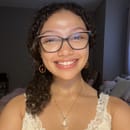“I will not harm you, Almaz. Please do not be afraid of me.” Lemma Tessema had uttered those words countlessly now. Regardless, as a child bride, Almaz was still terrified of her husband.
In the small town of Siqualla, Ethiopia, her fate was written for her before her birth. Bound by her father’s promise to Lemma Tessema’s family, Almaz Tefera had no choice but to marry at the tender age of fourteen.
To her surprise, Lemma Tessema was an educated, well-spoken and open-minded young man determined to pull Siqualla out of ignorance, needless suffering and, most importantly, its harmful cultural practices against women.
Beyond that Lemma Tessema had a deep desire to protect, love and empower his wife. He repeated once again, as he would until the day of his death, trying to save his wife’s life: “Rest assured; I will never do anything that harms you.”
But Lemma Tessema is just a fictional character in Ainalem Tebeje’s book. Does his existence only live between the pages of a novel? The author says, “No.”
In her novel My Love Story In Broken English, Ethiopian author Ainalem Tebeje shares her views on how to approach solving women’s issues in society. The author’s main premise emphasizes the importance of cultivating a society with the same qualities as Lemma Tessema to fight for women’s rights and ensure social equality.
“WOMEN’S ISSUES ARE SOCIETY’S ISSUES” – TEBEJE
“There’s a very common misunderstanding that women’s problems are women’s problems and they should be solved by women,” said Ainalem.
Regardless of the nature of the problems women face, there is this unspoken expectation that women should be their own solutions. Whether the problem is a social one or whether it is derived from violence, poverty, or a lack of participation in decision-making processes, in each case, women are expected to come together and find solutions.
In her fifteen years of experience working with the Government of Canada in the department of gender equality, Ainalem Tebeje says that gender issues in society are not created by women, nor should they be expected to be solved by them. Through Lemma Tessema’s dynamic character, Ainalem Tebeje showcases the ideal model figure that society should look up to when addressing women’s issues and gender equality.
Throughout the fight for women’s equality, Ainalem says it’s crucial that women are empowered. Women should have the tools they need to achieve equality. “However, women can’t fight against society,” said the author, emphasizing the importance of legislative measures and political and visionary leaderships to be part of this fight.
“We need men who stand up for women. Men who say, ‘I don’t want to live in a society where women are oppressed, exploited, abused, and sexually exploited.’” said Tebeje.
Women cannot stop the harmful cultural practices in Siqualla that undervalue women unless the entirety of society itself understands their importance and value.
DRAWING THE LINE: WHEN CULTURE BECOMES DEMEANING
Culture grants beauty and uniqueness to a community, but how does one know when it becomes detrimental to a society? Although Ainalem’s book My Love Story in Broken English is written in the context of Ethiopian culture, the lessons learned on women’s equality are relevant to the rest of the world.
“People have the impression that Africans are mean to women, that they don’t value women and they abuse women as if it’s natural to men,” Ainalem said. “That’s not the case. Those of us of Ethiopian origins know that our fathers, our brothers, our friends are very kind to us.”
So where does the problem lie? Ainalem says that there is a culture that has been built over the centuries that nobody is willing to question or change.
“It’s women who are promoting a culture that demeans them. Women support this culture because that’s what they know,” said Ainalem.
The potential solution presented in Ainalem’s book is the example of a husband empowering his wife to stand up against that culture. However, for a culture that has been around for centuries after centuries, this task is not an easy one. For this reason, the author emphasizes the importance of cultivating allies in society through education.
CULTIVATING ALLIES: THE IMPORTANCE OF EDUCATION
Is it really possible to find figures that empower women and fight for women this avidly? Regardless of whether the answer to that question is ‘yes’ or ‘no,’ Ainalem believes society can create them through education.
In My Love Story In Broken English, although Almaz was a beautiful and smart girl, she did not see Lemma Tessema’s qualities at first glance. Lemma Tessema promised Almaz since the day he saw her: “I will never harm you, my sweet bride. I will indeed give my life to you.”
As he continued to reassure her, promising his full protection, Almaz finally broke free from the beliefs that society held over her.
Almaz was convinced that she could do more than merely breed babies, and over time, she understood her potential outside the kitchen.
When Almaz Tefera and Lemma Tessema stood up against this culture, they became outcasts in society. The couple that was once associated with love and wisdom was now shut out from and by the community because they had offended elders.
In their fight against harmful cultural practices in Siqualla, the couple ruled out the implementation of government bans against forced, early or child marriage as it is not a sustainable solution. Instead, Lemma Tessema suggested education as a solution to solve these long-ingrained beliefs.
ABOUT THE AUTHOR:
Ainalem Tebeje identifies herself as “an Ethiopian tree with [her] roots, trunk, branches and leaves securely grounded on the Ethiopian identity.” Yet, Tebeje spent barely a decade in the country of her ancestors. Fleeing from a communist government in 1984, Tebeje came to Canada as a refugee. She could not shake the fear of being targeted and killed.
“I come from an era where people were hunted down like animals,” she said. “I was traumatized for the first ten years living under a communist regime.”
To her, the only justification for becoming a refugee is life. “To be alive, somewhere, anywhere.”
Tebeje got her undergraduate degree in Journalism in India and became “one of the first female journalists in the English news desk [in Ethiopia].”
“I come from humble beginnings, and I have achieved so much. I was quite proud of myself,” she said.
Tebeje is overall grateful for her experience in Canada. When she entered Carleton University to get her master’s degree in journalism, she was merely a new struggling immigrant. By the time she left, she had a degree and had met her future husband, the late Dr. Joseph Manyoni of the Department of Sociology and Anthropology.
The death of her husband left an insurmountable pain in Tebeje’s heart. After working in public service for 25 years, Tebeje is now retired. And the only way to deal with it was to write. Tebeje is now the author of two books. Her first novel, My Love Story in Broken English, was published in 2018 and is dedicated to Canada as a token of her gratitude. A sequel to the first, her second novel, entitled The Refugee, was launched in June 2022. Her novels explore cultural and gender issues in Ethiopia, conveying the important message of gender equality.


